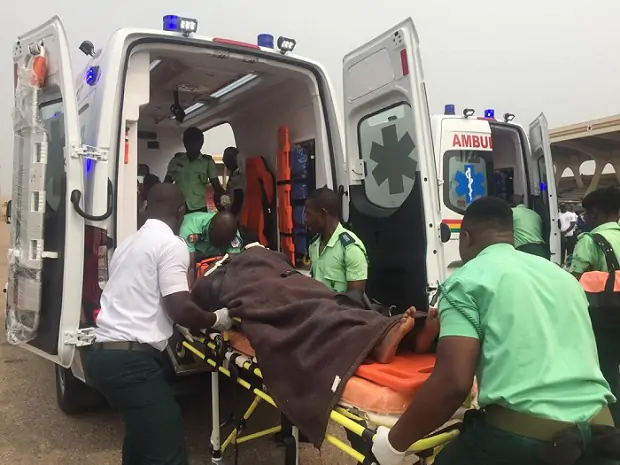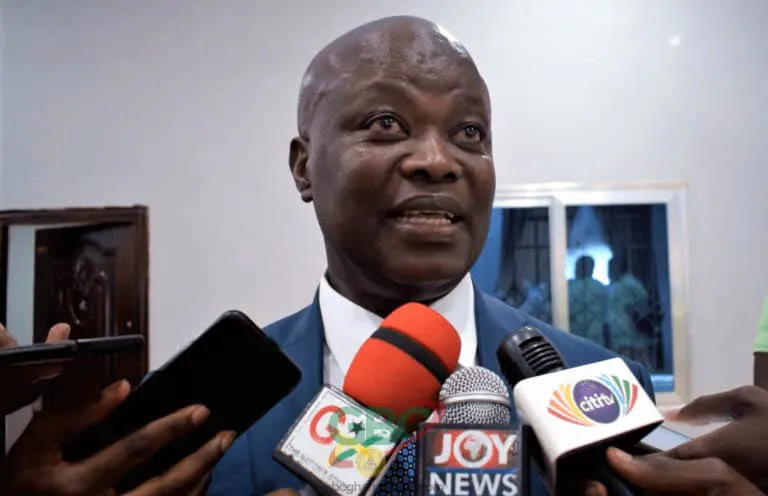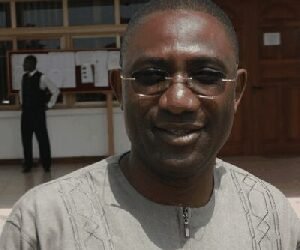The Executive Director of the Ghana National Ambulance Service (GNAS), Professor Ahmed Nuhu Zakaria has called on state agencies to uphold professionalism and resist infiltration by partisanship and political influences.
He warned that political interference could jeopardize public welfare and ultimately harm citizens who rely on these institutions for essential services.
In his remarks, he emphasized the critical role of emergency medical services (EMS) in Ghana.
“Emergency medical services is one of the critical healthcare systems that respond to emergencies and require highly skilled pre-hospital clinicians. The nature of EMS demands professionalism from its players to improve the national health system.’’
Professor Ahmed Nuhu Zakaria Executive Director of the Ghana National Ambulance Service
Professor Zakaria stressed that allegiance to the state must take precedence over party loyalty.
“Your objective is to serve your country, to serve your God, and to serve the state. The mistakes many CEOs make is that instead of owing allegiance to the state, they owe allegiance to political parties. That is where the mistake is.’’
Professor Ahmed Nuhu Zakaria Executive Director of the Ghana National Ambulance Service
According to him, professionals should find ways to align their services with the government’s agenda while maintaining their technical advisory roles.
“If a responsible CEO identifies the area the government of the day wants to take EMS and supports that agenda, they are less likely to be perceived as working against the administration. That way, they remain technical advisors guiding government policies on emergency healthcare.”
Professor Ahmed Nuhu Zakaria Executive Director of the Ghana National Ambulance Service
Political Changes for Institutional Growth
Prof. Zakaria acknowledged that political changes often bring shifts in policy, but he advised professionals in state agencies to leverage these transitions for the benefit of their institutions.
“The excitement in a change of government should come with the ability to maximize relationships with the new government to mobilize resources. But most of them tend to outdo each other, trying to destroy their predecessors. This should not be the case.’’
“For instance, assuming you and I belong to different political parties. When your party comes to power, you should be able to lobby for resources. Then when the reverse happens, I also lobby for resources. If we do that, the service will be the ultimate beneficiary, and the impact of political changes will not be felt adversely.”
Professor Ahmed Nuhu Zakaria Executive Director of the Ghana National Ambulance Service
Public Services

Prof. Zakaria commended successive governments for maintaining the autonomy of the National Ambulance Service. He highlighted how continuous development under different administrations has strengthened the EMS system in Ghana.
“President Kufuor started with three regions at a time; that was what the resources could provide. We had seven stations. During his tenure, we were able to recruit more people. President Mills came in and took over from where he left off. President Mahama started his first term, and we continued with the EMS system. President Akufo-Addo also continued the process. This continuity has helped the service grow [exponentially].’’
Professor Ahmed Nuhu Zakaria Executive Director of the Ghana National Ambulance Service
He emphasized that the agency has always prioritized its service to the state rather than political leadership.
“At all times, if you check our history, we have always served in our best capacity, regardless of who was in power. This selflessness ensures that the right things are done, even if it requires personal sacrifices.’’
“EMS should not be politicized. It is one of the few places that does not recognize political affiliations. Our goal should always be to enhance the country’s health system and save lives.’’
Professor Ahmed Nuhu Zakaria Executive Director of the Ghana National Ambulance Service
He urged government officials and state agency personnel to work collectively to build a resilient emergency medical system that benefits all Ghanaians, regardless of political changes.
The call by Prof. Ahmed Nuhu Zakaria for state agencies to resist political interference and focus on professionalism serves as a timely reminder of the importance of maintaining institutional integrity.
His emphasis on continuity, technical advisory roles, and loyalty to the state over political parties offers a much nuanced approach to ensuring the efficiency and effectiveness of Ghana’s emergency medical services and other public institutions.
READ ALSO; NPA Plans Downstream Reforms to Boost 24-Hour Economy























